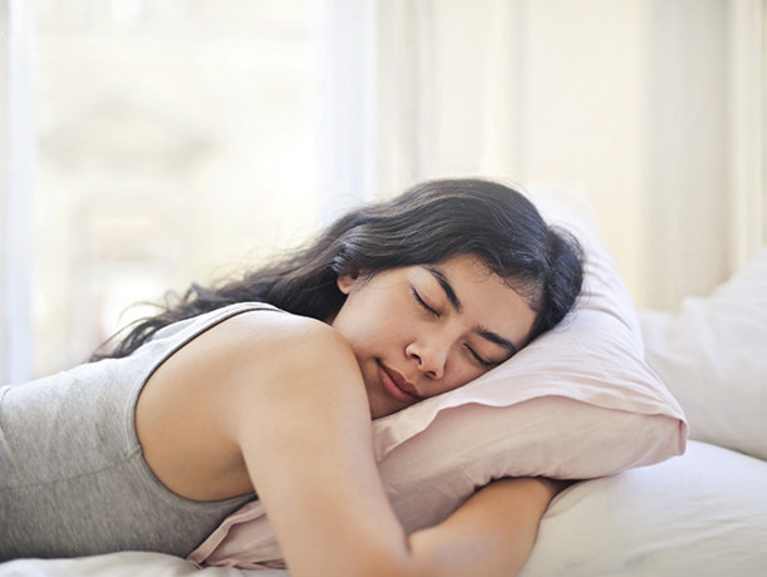
Why do I drool when I sleep? If you drool while you sleep, here's why and what to do about it.
Embarrassing, maybe, but drooling while you're sleeping is generally no cause for alarm. If you don't like the sensation of waking up to a damp pillow, the sleep experts at Sleep Number explain why people drool, and how to reduce its occurrence.
REASONS FOR HYPERSALIVATING
Drooling, or hypersalivating, is a result of having too much saliva in your mouth or having difficulties swallowing the saliva you do produce. One of the most common causes of drooling is sleeping position. Side and stomach sleepers may drool more often because the accumulated saliva gathers at the sides of the mouth and leaks out.
Hypersalivating is also common during seasonal allergy or cold and flu season, as the body produces more saliva to fight the foreign organisms that are responsible for symptoms such as a runny nose or watery eyes.
Similarly, gastrointestinal reflux disorder (GERD), which can cause heartburn, can also increase production of saliva as the body works to soothe the irritation caused by the backup of stomach acid in the esophagus.
Those who snore and sleep with their mouth open don't swallow as much during the night, which also triggers drooling as the saliva accumulates in the mouth.
Less swallowing means more saliva which means more drooling, according to Sleep Number experts.
Certain medications, such as antidepressants, can also cause dry mouth or excess saliva, which can also result in drooling while sleeping.
TIPS TO STOP DROOLING
Occasional drooling is a symptom of something else, rather than a problem in and of itself. Here's some tips to reduce drooling:
-
Treat the underlying condition. Consult your healthcare provider to see if you need medication for allergies or a sinus infection. If drooling is a chronic problem, let your practitioner know in order to rule out anything serious.
-
Change your sleeping position. Sleeping on your back or raising your head with a wedge pillow or adjustable bed will help gravity prevent saliva from coming out of your mouth.
-
Maintain a healthy balance of saliva in your mouth. According to a study reported in the British Journal of Medical Practitioners, some home remedies include biting on a lemon wedge and drinking plenty of water, both of which are thought to thin out the saliva, making it less likely to pool in your mouth.
-
Use an oral appliance. Also called a mandibular device, these appliances look like a mouth guard and aid in swallowing while also keeping the jaw aligned and the mouth closed.
Like diet and exercise, quality sleep has a profound impact on our physical, emotional and mental wellbeing. Because no two people sleep the same, Sleep Number 360® smart beds, with SleepIQ® technology, sense your movements and automatically adjust firmness, comfort and support to keep you both sleeping comfortably and provide proven quality sleep. Find your Sleep Number® setting for your best possible night's sleep, and if you own a Sleep Number® bed, log in to your InnerCircle℠ Rewards account to see your exclusive offers, refer friends and more.